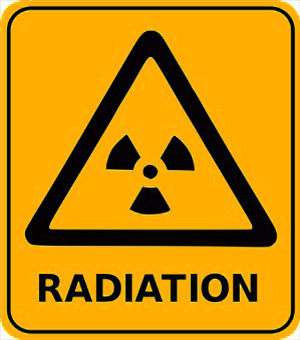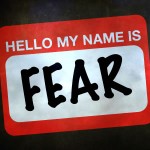
Potassium Iodide (symbol KI) is a non-radioactive iodine. Stable iodine is a chemical required by the body to produce thyroid hormones. While stable iodine is usually taken into our bodies via the food that we consume, Potassium Iodide is stable iodine consumed in medicine form.
Following a nuclear or radiological event, radioactive iodine is often released into the air which is then breathed into our lungs, and/or contaminates the food and water supply. Radioactive iodine absorbed by our thyroid gland is very damaging to it, especially to those of us under the age of 40. Because non-radioactive Potassium Iodide actively blocks radioactive iodine from entering the thyroid gland, it can greatly help protect the gland from this damage.
In a radiation emergency, local emergency management personnel or local public health officials are tasked with providing the public with information regarding the use of Potassium Iodide providing those officials are alive and actively carrying out their official duties. In the event there is no one to provide the public with this important information, here is what you need to know to survive…
Common Adult Dose for Radiation Emergency:
• Pregnant or lactating women with exposure greater than or equal to 5 centigrays (cGy): 130 mg orally per day.
• Adults between the ages of 18 and 40 years with radiation exposure greater than or equal to 10 centigrays (cGy): 130 mg orally per day.
• Adults 40 years and older with exposure greater than 500 centigrays (cGy): 130 mg orally per day.
Common Pediatric Dose for Radiation Emergency:
• Children less than or equal to 1 month old with exposure equal to or greater than 5 centigrays (cGy): 16 mg orally per day.
• Children from 1 month to 3 years in age with exposure equal to or greater than 5 centigrays (cGy): 32 mg orally per day.
• Children between 3 years and 18 years of age ( weighing less than 70 kg) with exposure equal to or greater than 5 centigrays (cGy): 65 mg orally per day.
• Children over 13 years (weighing 150 lbs or more) with exposure equal to or greater than 5 centigrays (cGy): 130 mg orally per day.
Potassium Iodide administered 12 hours prior to radiation exposure is ideal. A single dose of Potassium Iodide protects the thyroid gland for 24 hours. Taking a higher dose of Potassium Iodide, or taking Potassium Iodide more often than recommended, does not offer more protection and may cause severe illness or death.
When You Should Not Take Potassium Iodide:
Taking Potassium Iodide may be harmful for some people because of the high level of iodine contained in it. You should not take Potassium Iodide if :
• You know you are allergic to iodine (If you are unsure about this, consult your doctor). A seafood or shellfish allergy does not necessarily mean that you are allergic to iodine.
• You have certain skin disorders such as dermatitis herpetiformis (Duhring’s Disease), or Urticaria vasculitis.
Related Definitions:
Centigray: (abbreviated cGy) A unit of absorbed dose of radiation. One centigray equals one rad.
Gray: A unit of absorbed dose of radiation. One gray equals 100 rad.
Sievert: (symbol Sv) is the SI (International system of Units) derived unit of dose equivalent. It attempts to reflect the biological effects of radiation. One Sv equals 100 rem.
Rem: (symbol rem) is a unit of radiation dose equivalent. It is the product of the absorbed dose in rads and a weighting factor (WR) which accounts for the effectiveness of the radiation to cause biological damage. Rem stands for röntgen equivalent in man (or mammal).
Disclaimer: As with any drug, consult your physician and/or pharmacist before administering! Responsible use of any drug lies with the reader, not with us.
Sources: Dosage information from Drugs.com. Definitions from Wikipedia.org. Other information from the US Center of Disease Control (CDC).







